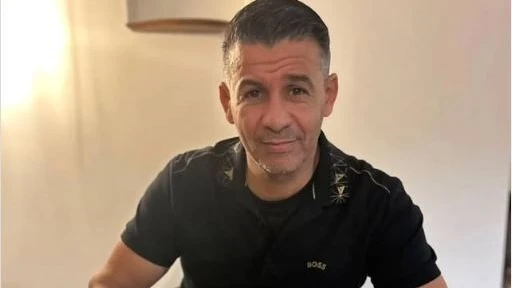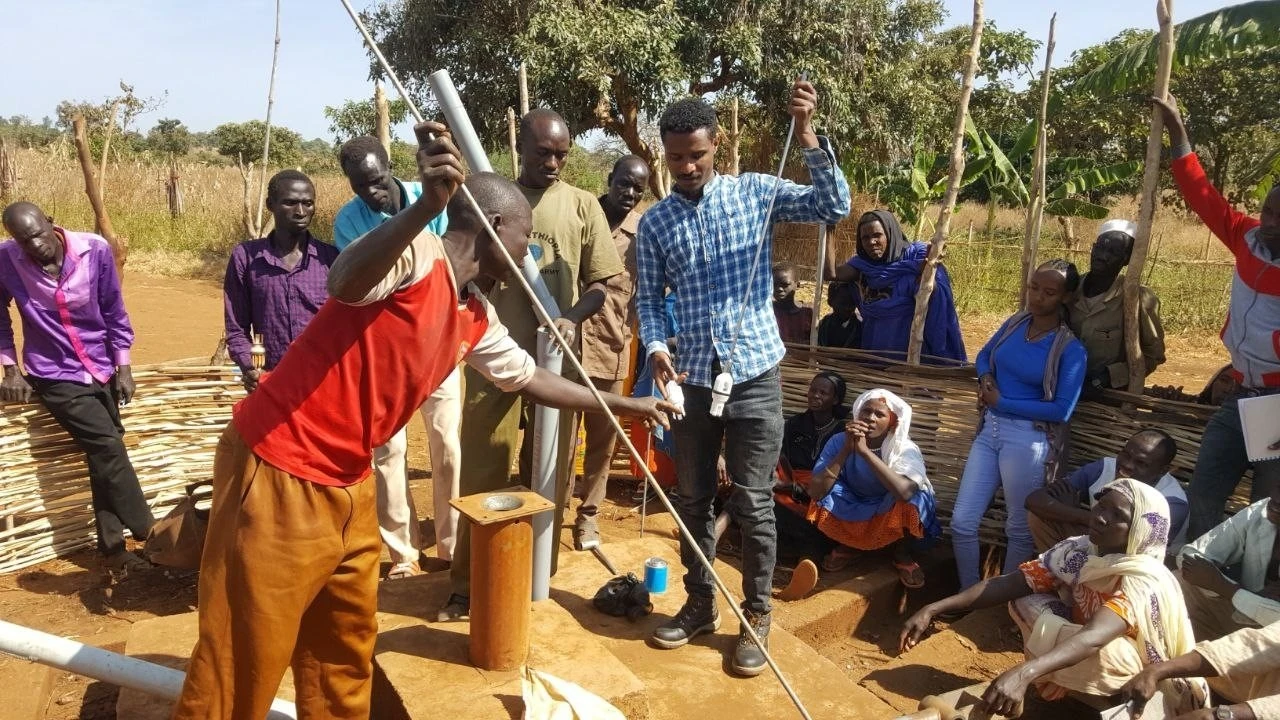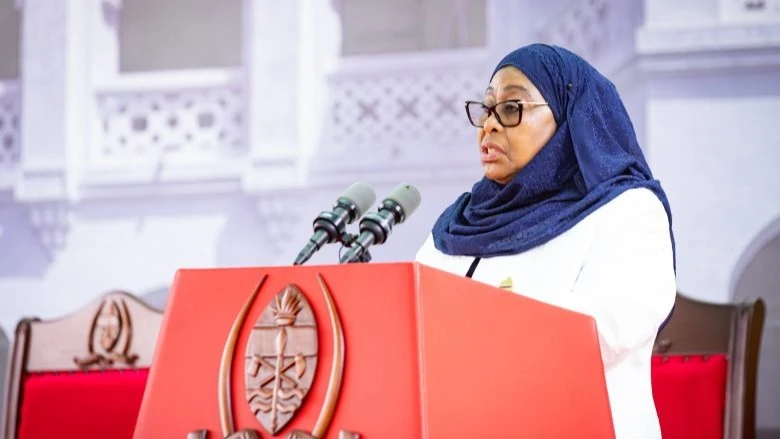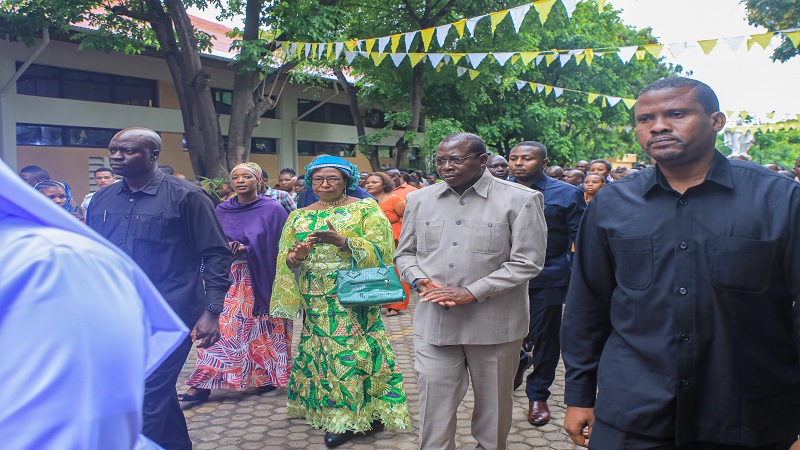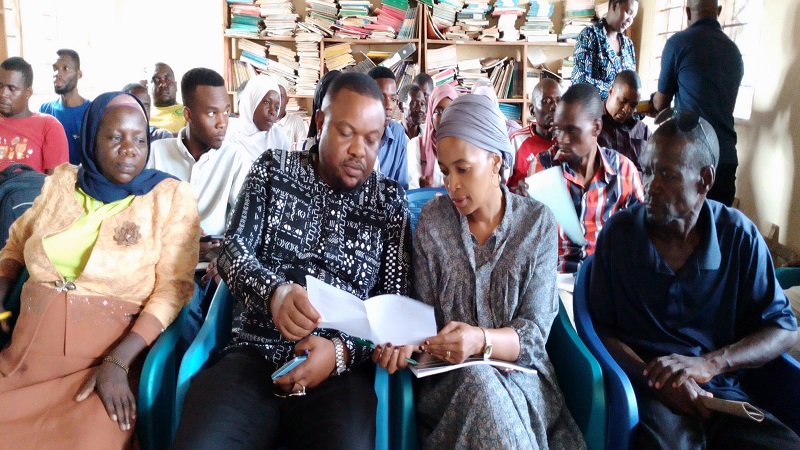Mbwego forest reserve faces danger of disappearing
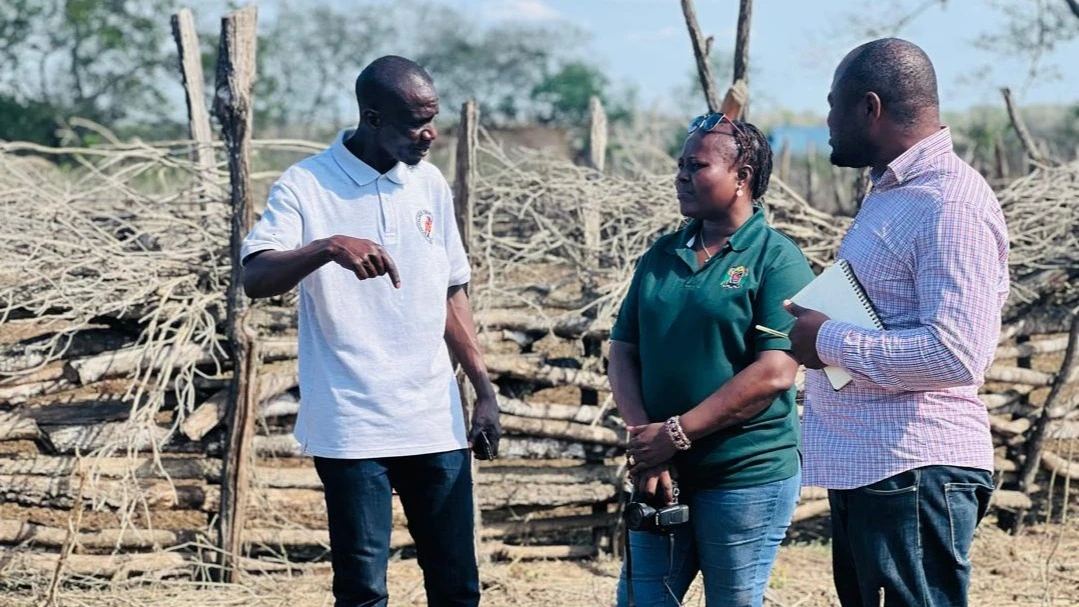
A total of 1,102.5 hectares of the Mbwego village land forest reserve in Mnkonde village, Kilindi District, Tanga Region, are in danger of disappearing due to anthropogenic factors caused by cattle herders.
Musa Kumbi, chairman of the Msanja Ward Forest Conservation Network (HIMIMSA), raised this concern when speaking to journalists and staff from the Tanzania Community Forest Conservation Network (MJUMITA) and the Tanzania Forest Conservation Group (TFCG), who visited the village to assess the impact of the Integrated Forest Biomass Energy Solutions for Tanzania (IFBEST) project.
Residents of Mnkonde village complain that Maasai herders are allegedly conducting illegal farming activities, constructing houses, cattle sheds, and grazing cattle within the forest reserves, leading to deforestation. Currently, there are Maasai herders who have settled in the forest reserve, with 14 households residing within its boundaries. When attempts are made to remove them, they refuse to leave, and the residents feel powerless to intervene.
Concerns for safety are growing among the villagers, and the forests continue to suffer damage. Residents have noticed this decline while conducting patrols to prevent encroachment from those invading the forests for agricultural activities and cattle grazing.
Kumbi emphasizes the need for government intervention, as the Mnkonde Village Council has submitted complaints to the district level, but no action has been taken, allowing the destruction of their forest to persist.
Juma Micholi, chairman of the Village Natural Resources Committee (VNRC), states they rely on the Mbwego forest reserve for sustainable timber harvesting and revenue collection to fund village development projects. The forest was officially designated in 2008, and from 2022 to 2023, the village earned over 60 million TZS from sustainable timber harvesting.
“From this income, we have drilled a deep water well for Mnkonde residents, built a mosque, purchased 16 windows, and allocated funds for citizens' house address signs,” he said. He praised TFCG, MJUMITA, and Sokoine University of Agriculture (SUA) for training villagers in sustainable harvesting and forest conservation.
“We’re proud of the IBEST project because villagers are now aware of the by-laws and regulations that prevent illegal entry into the forest reserve without approval from village government leaders, and they know where to obtain permits for timber harvesting,” Micholi explained.
Villages without natural resource committees, such as Mswaki and Mzungu Hasara, are now coming to learn from them about forest conservation, as their reserves have been depleted due to agriculture, cattle grazing, and charcoal production.
Zubeda Kihiyo, chairperson of the Mnkonde village natural resource committee, expressed gratitude to TFCG and MJUMITA for training them in community-based forest management, good governance, gender equality, and how to communicate with invaders in the forest reserve, with funding from the IFBEST project. However, despite receiving this training, the forest reserves continue to be under threat.
Villagers are demanding government intervention to remove these invaders and allocate alternative land for them, as their numbers are increasing inside the forest reserves, clearing trees that the community relies on for revenue collection to support village development projects. If the government fails to take legal action, all the forests may disappear due to farming, livestock grazing, and unsustainable charcoal production.
Although the village government has issued notices for the Maasai herders to vacate the area, while some have left, others remain. Mswaki, Mzungu Hasara, and Mbwego village land forest reserves are being illegally invaded by herders and farmers.
The training provided was free of charge, funded by the European Union through the Ministry of Finance. With the knowledge and skills acquired from MJUMITA and TFCG, VNRC members are now conducting regular patrols within the forests.
Sofia Madeni from the Chekanao group mentioned that through the IFBEST project, they learned to establish Village Savings and Loans Associations (VSLAs) in Mnkonde village. Both women and men are now engaging in income-generating activities instead of relying on cutting down trees for firewood and charcoal production, a significant shift from previous practices.
"Through the VSLA group, I have taken a loan to pay for my child's school fees," Madeni stated. Some women are now purchasing patterned fabric to sell in the village, further reducing their dependence on firewood and charcoal.
Juma Kihara, Mnkonde village chairman, added that the village has 2,748 residents and 587 households, comprising 1,400 men and 1,348 women. Mwanaidi Gwalu, the Guardian of MJUMITA in Msanja Ward, expressed gratitude to TFCG and MJUMITA for training villagers in forest management.
So far, they have drilled a deep water well through conservation efforts, received training on establishing VSLAs, and formed two groups, Upendo and Chekanao. Previously, the community engaged in illegal charcoal burning, which harmed their health. Now, they avoid cutting firewood or producing charcoal, opting instead to take loans from savings groups to invest in their businesses.
Elida Fundi, MJUMITA's good governance and advocacy officer, noted, “We are training communities living at the forest edges to benefit from forest products and building capacity within MJUMITA’s networks and other civil society organizations to educate communities on forest conservation and adherence to policies and laws. Our goal is to enable sustainable forest management in the Tanga region while producing charcoal sustainably.”
Fundi expressed pride in the achievements witnessed in Lusane, Gendagenda, and Mnkonde villages, highlighting the positive results of the IFBEST project, including the land use plan that has helped resolve village boundary issues.
Top Headlines
© 2025 IPPMEDIA.COM. ALL RIGHTS RESERVED













